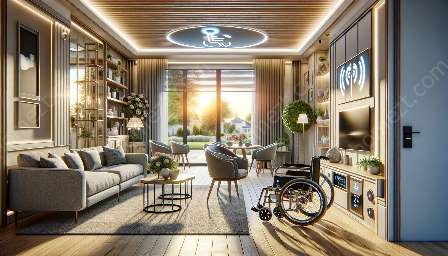Smart home technology has revolutionized the way we interact with our living spaces, offering convenience, security, and safety. For the elderly and disabled, these benefits are especially important. With remote control systems designed specifically for the needs of the elderly, smart homes can provide enhanced accessibility and independence.
Designing for Disabled or Elderly in Smart Homes
Designing for disabled or elderly individuals in smart homes requires careful consideration of their unique needs. Remote control systems play a crucial role in providing easy access to various home functions, allowing for greater autonomy and safety.
Intelligent Home Design
Intelligent home design encompasses a wide range of features, including automation, connectivity, and accessibility. Integrating remote control systems for the elderly into intelligent home design enhances the overall functionality and user experience, ensuring that individuals can manage their living environment with ease.
The Role of Remote Control Systems for Elderly in Smart Homes
Remote control systems for the elderly in smart homes offer a multitude of benefits, from simplifying daily tasks to promoting safety and security. These systems can be tailored to individual needs and can encompass a variety of functions, such as lighting, temperature control, and security monitoring.
Enhanced Accessibility
One of the primary advantages of remote control systems for the elderly in smart homes is the enhanced accessibility they provide. Through intuitive interfaces and voice-command technologies, individuals can effortlessly manage various aspects of their home environment, regardless of physical limitations.
Promoting Independence
By empowering elderly and disabled individuals to control their living space through remote systems, smart homes can promote independence and self-sufficiency. This allows individuals to maintain a sense of autonomy and reduces the need for constant assistance, contributing to overall well-being.
Improved Safety and Security
Remote control systems also play a vital role in enhancing the safety and security of smart homes. From monitoring entry points to alerting emergency services, these systems provide peace of mind for both residents and their caregivers.
Integration with Other Smart Home Features
Remote control systems for the elderly can seamlessly integrate with other smart home features, such as voice assistants, motion sensors, and health monitoring devices. This interconnected ecosystem enhances the overall functionality of the home and creates a holistic, supportive environment.
Future Developments and Innovations
As technology continues to advance, remote control systems for the elderly in smart homes will undoubtedly see further improvements and innovations. From personalized user interfaces to predictive AI algorithms, the future of smart home accessibility holds great promise for enhancing the lives of elderly and disabled individuals.
Conclusion
Remote control systems tailored to the needs of the elderly in smart homes are not just a convenience—they are a necessity. By prioritizing accessibility, safety, and independence, these systems play a crucial role in creating inclusive living spaces that support the well-being of all individuals.


